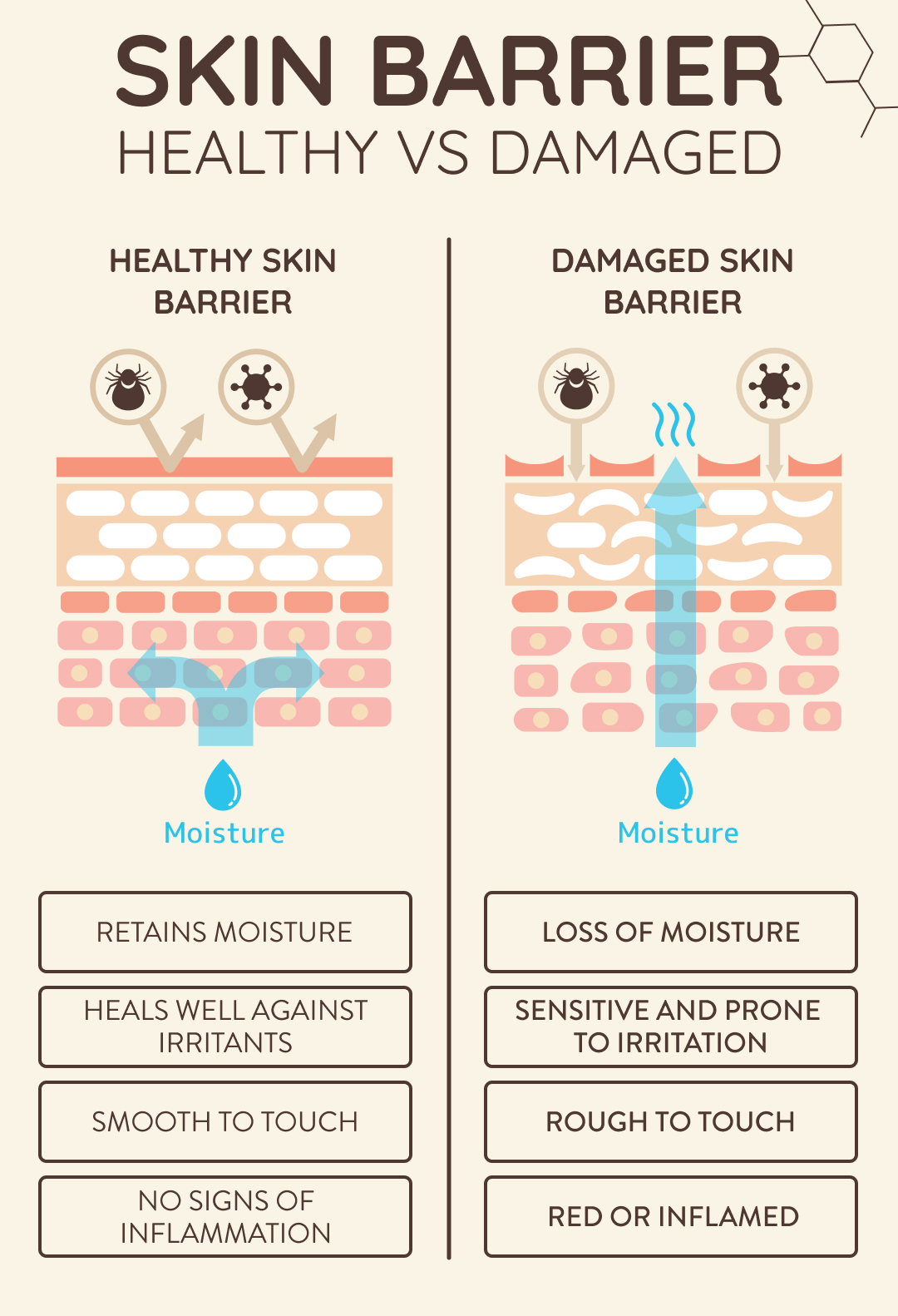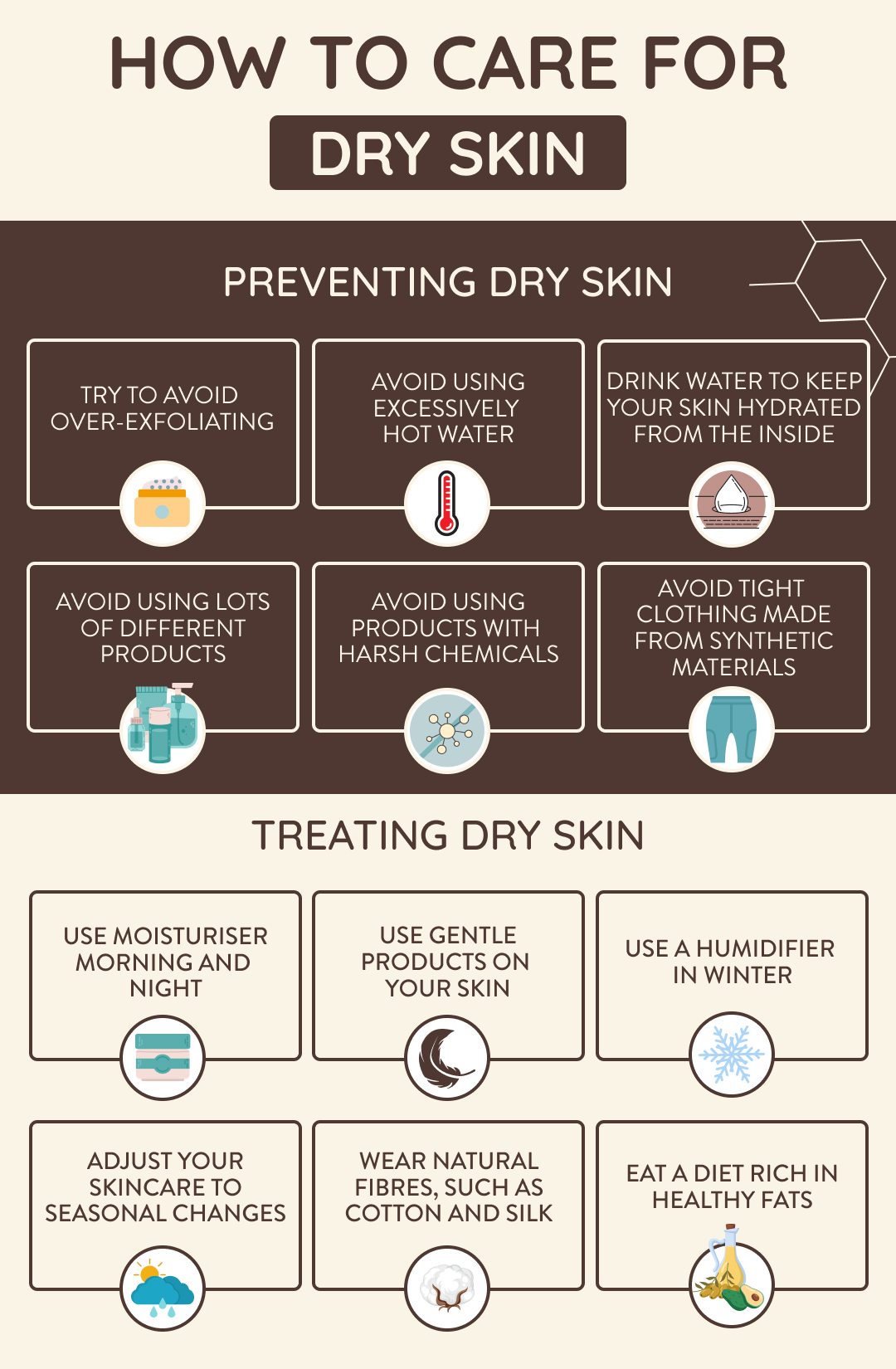Your Top Skincare Queries Answered
Given that all of us have unique skin along with living in different environments and using a range of products, our skin can be a mystery and many of us often turn online to find answers to our skincare queries. But we may not always find the answers we’re looking for. Sometimes we may also be presented with false or unreliable information.
We found the top skincare-related searches in the UK across Google and TikTok for the past 12 months to see which questions and concerns were most in demand with people wanting help and information. And as a respected wellness pioneer, we wanted to provide expert insights and guidance to people scouring the internet for trusted help with their skin concerns.
Our research revealed a few distinct areas people were turning to the internet for answers. We’ve grouped some of the top search queries into the most common skincare categories below.
Dry and Sensitive Skin Queries
Why is my skin so dry?
If your skin doesn’t have enough moisture, it can become dry1. Dry skin is common and can be caused by a range of factors, such as the weather, age and health conditions1. For example, cold climates with heavy winds can cause your skin to dry out1. Therefore, if your skin appears drier than usual during winter, the temperature, and weather changes could be to blame1.
As you age, your skin’s moisture-producing oil glands also start to dry, which causes the elasticity in your skin to dry up1. Sometimes certain health conditions can cause dry skin such as allergies and eczema1. If needed, your doctor should be able to determine if this is the case1.
How do you help dry skin?
The best way to support most types of dry skin involves adding moisture1. Moisturising your skin can help smooth and soften areas of dryness and help prevent cracking1. It can also help to rebuild your natural skin barrier by adding moisture back to your skin1.
There are various types of moisturising agents available, from ointments and creams to lotions and oils1. Many of which contain special ingredients to help soothe and hydrate your skin1. For example AVEENO® SKIN RELIEF MOISTURISING HAND CREAM is formulated with soothing oat and shea butter to help add the moisture needed and leave hands feeling nourished.
Make sure to choose the right moisturiser for your skin16. For example, if you have sensitive skin, look for products that are hypoallergenic and fragrance-free16. It’s also important to choose a product that is designed for a specific area of your skin1. For example, if you are experiencing dry skin on both your hands and your face, then you may need a different moisturiser for each area1.
For very dry, cracked and itchy skin, your GP may recommend a topical steroid, which can help reduce inflammation1.
What is sensitive skin?
Sensitive skin is often characterised by stinging, burning or itchiness2. You may not know you have sensitive skin until you have a reaction to a certain product3. If you have sensitive skin, you may be able to support your skin by making a few simple adjustments to your skincare routine3. For example, you could try switching to skincare products that are suitable for sensitive skin3.
Why is my skin so sensitive all of a sudden?
Several factors can cause your skin to appear sensitive suddenly, such as dry skin or health conditions that impact the skin 3. For example, if your skin loses too much water and oil, it can dry out3. This can cause your skin to:
Feel rough
Appear red
Itch
Scale
Flake
Crack and bleed3.
Some health conditions such as eczema can make you particularly sensitive to products that don’t bother most people3. Whilst eczema can look different for everyone, it may cause:
Dryness
Itchy rash Cracked or scaly skin
Red or brown/grey patches of skin
Swollen skin3.
To help manage dry skin, apply a moisturising cream to the affected area two to three times a day3. This can help to restore moisture to your skin and prevent it from drying3. Look for products that are fragrance-free as these tend to be more suitable for sensitive skin3.
If you have skin prone to eczema, opt for products that won’t irritate your skin3. You can try moisturising products that contain ceramides3. Otherwise known as lipids, ceramides can help to form a protective layer over your skin3. Your pharmacist or doctor can recommend creams to help manage eczema symptoms3.
Other reasons why your skin may become sensitive suddenly include irritant contact dermatitis and allergic contact dermatitis3. Irritant contact dermatitis typically happens when your skin becomes irritated by something it touches3. While allergic contact dermatitis happens when your skin reacts to a specific substance3. This could be a new shampoo or makeup product3.
Contact dermatitis usually clears up on its own within a few weeks3. If your skin is sore and inflamed, your GP may prescribe a topical corticosteroid to help reduce any inflammation 17. In severe cases of contact dermatitis, your GP may prescribe corticosteroid tablets17.
How do you support the skin barrier?
Your skin barrier regulates water loss, retains moisture and helps keep you hydrated18. But your skin barrier can become compromised by external factors such as the environment, pollutants and exposure to harsh chemicals4. Signs of a compromised skin barrier may include dry skin and sensitive skin4.
There are several things you can do to help protect and restore your skin barrier4. A good place to start is by reviewing your current skincare routine4. For example, certain types of scrubs and brushes you’re using could be damaging your skin barrier4. Additionally, if your skincare routine is too stringent, this could be weakening your skin barrier4.
You can also incorporate products into your skincare routine that can support the skin moisture barrier. For example, AVEENO® SKIN RELIEF MOISTURISING LOTION,expertly formulated with triple oat complex and shea butter, strengthens the skin’s natural barrier to help protect against external aggressors.
You may also want to avoid over-washing your face and steer clear of products that contain harsh chemicals4. Sometimes, humid and dry environments can damage your skin barrier, so it may be best to avoid these if your skin is particularly sensitive4. Being mindful of pH and choosing products with a pH between 4.0 and 5.0 may also help protect and restore your skin barrier4.

